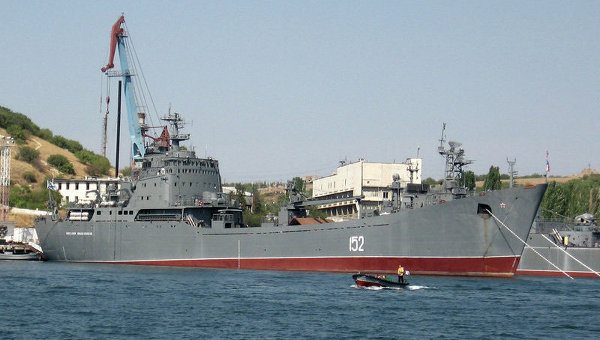A Russian cargo ship reportedly carrying attack helicopters to Syria turned back today when its British insurer canceled coverage, but a Defense Department spokesman said three other Russian vessels will carry supplies and possibly troops to the Russian naval base at Tartus.
Russian military officials have said the supplies are intended for their own resupply and force protection, Pentagon spokesman Navy Capt. John Kirby told reporters today.
Kirby said defense officials support Russia’s decision to stop the cargo ship’s voyage. “We … don’t want to see the Assad regime get arms and ammunition or any lethal support that they could use,” he said.
In January 2011, Syrians began protesting against the government of Bashar Assad. The protests spread into a more general uprising, which United Nations Secretary General Ban Ki-moon said in May had claimed some 10,000 lives. Russia, a Syrian ally, has threatened to veto any U.N. Security Council sanctions against Syria.
President Barack Obama and Russian President Vladimir Putin issued a joint statement yesterday calling for “moving forward on [a] political transition to a democratic, pluralistic political system” in Syria.
Kirby said political transition is “the right way forward.”
“I think we can all agree that that’s the right answer for Syria and for the Syrian people,” he added.
International diplomatic and economic pressure “needs to continue to be applied to the Assad regime so that they will step down and do what’s right for their own people,” the spokesman added.
Kirby noted U.S. defense officials have repeatedly said providing lethal military aid to Assad’s forces is “intolerable and unacceptable.”
“We’ve been very clear with the entire international community, not just the Russians, about what our concerns are with respect to lethal aid and assistance going to the Assad regime,” he added.
Pentagon Press Secretary George Little, who also spoke during today’s briefing, said any disagreement over Syria between Russia and the United States hasn’t affected the northern distribution network. The network, which Russia supports, has been the only means of ground transport for NATO supplies headed into Afghanistan since Pakistan closed ground cargo routes to NATO forces in November.
“It’s an extremely complicated but essential network for our supplies in and out of Afghanistan,” Little said. “I have heard no indication that the Russians are going to change their participation in that network and would reiterate our thanks to the government of Russia for supporting it.”
“At the same time,” Kirby said, “we’ve been very clear with them about our concerns about lethal support to the Syrian regime. It’s not like we haven’t been honest about what concerns us with these arms sales to Assad. We have been.”
Kirby noted U.S. officials are working with the international community “as much and as aggressively as we can to make sure that Assad doesn’t have at his disposal the means to kill his own people, or at least limit that ability as much as we can.”










